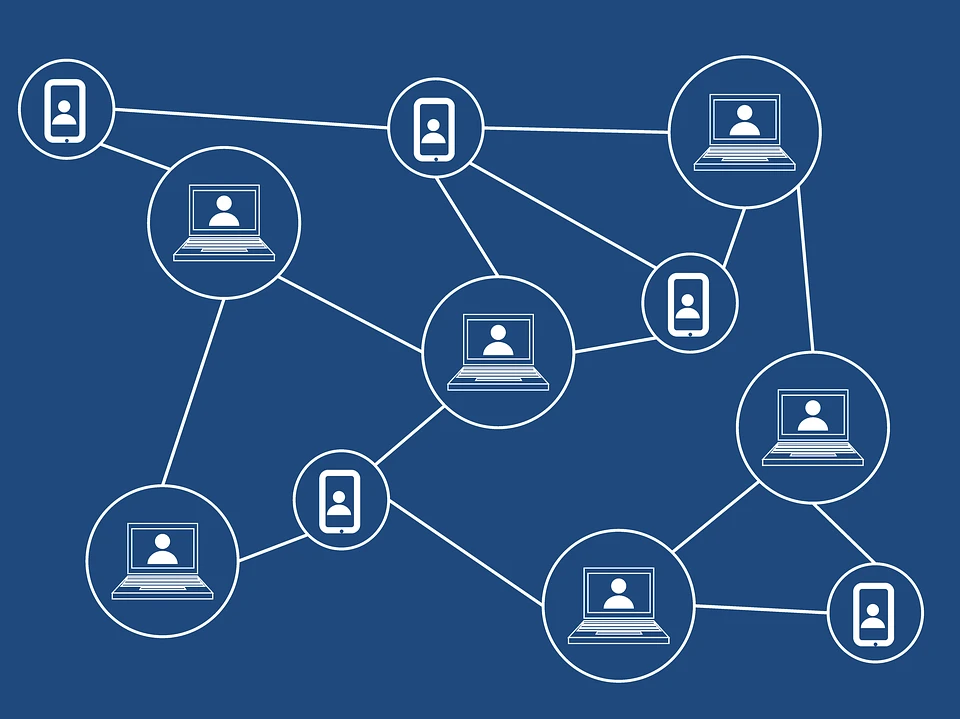Change the Digital Marketing Landscape with Blockchain Technology

Blockchain technology is the new kid on the block that is set to change many aspects of digital marketing by liberating it from the shackles of a few dominant players that control the digital operations across the web. Blockchain technology created the most high-impacting first impression in the digital sphere by introducing Bitcoin, the digital currency that many experts view as the future universal currency.
Indeed, there are the naysayers too, who consider it disgusting. That Bitcoin elicits such diverse and extreme feelings points to the immense capabilities of Blockchain, the technology behind Bitcoin. The blockchain is a trend-setting phenomenon that can have far-reaching effects in digital marketing. Even the experts who are Bitcoin skeptics admit that Blockchain is here to stay.
The basics of Blockchain
There is a reason to believe that Blockchain technology will change digital marketing because of the revolutionary changes that it has brought about in the marketing relationship between consumers and businesses feels the experts at Vision Smash York PA. Blockchain has infused immense transparency in all aspects of business, and the technology in its fundamental form is a method of digital record keeping that creates a transparent ledger of transactions which no one can tamper with. It is impossible to change or delete any information once entered in the ledger. The exact use of funds remains completely visible as also the recipients of the funds.
The blockchain is going to affect many aspects of business communication even though the majority of discussions about the impact of the technology focus on the financial and banking transactions. However, the impact of Blockchain will go much beyond financial transactions and affect marketers who use digital marketing for their products and services.
Changes in data privacy and data collection
Data privacy is a big issue today. It might be good to assume that your data is safe in the hands of the Internet Service Providers and web browsers, the gatekeepers of the internet.But these companies are continually monitoring our online activities from what we read, whom we talk to and what we buy. The recent exposure of trading in Facebook data has made it clear that our data are easy meat for advertisers who can purchase it with complete disregard for consumer privacy. That is where Blockchain can provide an assuring solution.
Blockstack is a network built on blockchain that aspires to become the new internet of decentralized apps. The network built on Blockstack uses block-chain verified signatures meaning that your data remains in your custody without the need of storing it on servers that belong to the applications you are using. Just imagine as if your data is on a data card that belongs to you which you insert like a key to access any site or app. After finishing, remove the key or data card and the absence of any log to monitor the use of the site or app does not leave any trace of the user on the platform.
Today, marketers rely heavily on the personal data gathered from various online platforms to design the marketing campaigns. But once the new technology of blockchain becomes a solid choice, it will surely change the ways of marketing. It will usher in a new era when marketers have to collect data directly from customers and prospects.
The style of digital advertising will change
Although marketers gain mileage from display advertisements on the internet, there are some serious issues with it for both advertisers and consumers. For advertisers, digital advertising is complicated and not easy to manage besides being expensive. Also, the options are limited beyond Google and Facebook that dominate the digital advertising market. Nonetheless, there is no denying that blockchain and social media have had a close relationship. As Payman Taei shared on VoyMedia Advertising Agency NYC, social media content used to benefit the platform itself instead of the creators. Nowadays, you can use the blockchain technology to easily pay content creators for their efforts.Consumers are wary of digital advertisements that are intrusive and annoying besides wasting bandwidth and draining the batteries of mobile devices.
The blockchain browser (Brave) and its accompanying feature of BAT or Basic Application Token are now about to fix these issues. The way users interact with advertisements is set to change by overturning the monopoly of digital ads that would now allow advertisers, publishers, and users to trade on the value of online attention.
Advertisers can use BAT for buying ads – Advertisers can activate the ads which are private tabs in the Brave browser but can also be landing pages and push notifications. The aim is to have fewer but high-quality ads.
Users can choose the ads they want to see – No more forcing users to view ads they do not like. Users can now decide which type of ads they want to see. It allows users to learn about brands and products they are interested to know about and advertisers can gather more precise and accurate consumer information.
Win-win for publishers, advertisers, and consumers – Courtesy BAT’s revenue sharing program, the ad spend received by publishers is much higher than what consumers receive. They can charge BAT for access to subscriptions and premium content.
Publishers earn more revenue and have more control on ads, marketers achiever better targeting and ad performance data and users enjoy fewer but better quality ads that are interesting for them. It’s a win-win situation for all stakeholders.
Changes in ownership and security of digital assets
The advent of digital music made way for piracy that was rampant in the nineties and the early part of the new century. The emergence of streaming services like Apple Music, Tidal and Spotify were able to provide a partial solution to the problem because the compensation that artists receive is only a fraction of what they deserve and payouts often do not reach the right people. The blockchain is the next phase in the evolution of the digital music economy with projects like Steem, Tao and Po.et that would allow artists, musicians, and photographers offer their work to a vast audience without paying an intermediary like iTunes, YouTube, Shutterstock or Bandcamp. Artists could market themselves directly to the audience without losing control of their creations.
The above are ideal case scenarios but what can happen depends on the extent of adaption of blockchain technology to replace the existing technologies.


